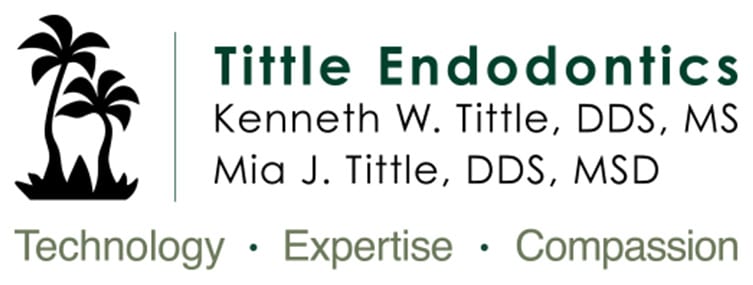If your dentist informs you that you need a root canal, you should schedule the procedure immediately. Failing to treat a severely decayed tooth or a tooth that has developed an infection in the pulp (interior of the tooth) can lead to further damage, decay, a painful dental abscess, or the need for an extraction. Read on to learn more about root canals and why time is of the essence when it comes to treating a decayed or infected tooth.
Why Would I Need a Root Canal?
A root canal, also known as root canal therapy, will be required if you’ve developed widespread decay in a tooth that has spread to the nerve and blood vessels inside the tooth. Other patients might need a procedure known as endodontic retreatment if a tooth that previously had a root canal develops new problems. Lastly, you may need a root canal to save a tooth if you’ve experienced dental trauma from a fall, car accident, or sports injury.
Teeth that develop fractures over time or suffer spontaneous cracks are susceptible to decay and infections. Even tiny fractures in a tooth can allow bacteria to get inside the tooth and cause inflammation. Without treatment, an infected tooth will not heal. More often than not, failing to treat an infected tooth will lead to the formation of inflammation and infection around the ends of your root and into the surrounding bone.
A dental abscess is a painful condition brought about by the formation of a pus-filled sac near an infected tooth. The pain may radiate up the face. Worse, the infection may spread from the tooth to other areas of the body. Without treatment, you risk significant pain and loss of the tooth.
Root Canal: What to Expect
Root canal therapy is normally not painful, despite what you may have heard. Technological advancements have made it virtually painless. A root canal will take no longer than getting a dental filling or crown for most patients.
Before your treatment, you will have digital x-rays and non-invasive 3D scans of your mouth. These images allow for precision in treating the infection and serve as valuable diagnostic tools to confirm the health of your teeth, gums, and jaw.
Next, the area surrounding the affected tooth will be completely anesthetized. Then a tiny hole will be created in the top of your tooth to allow the endodontist to treat the inflamed or infected pulp inside the tooth. All decay, debris, and bacteria will be removed. Medication to treat any remaining infection may be applied. The chamber and canals will be filled, sealing the tooth. You will receive a temporary filling until your permanent bonded restoration and custom fabricated dental crown is completed with your general dentist.
The entire process often takes around an hour.
Before you leave, you’ll be given post-treatment instructions. You’ll be able to eat and drink normally once the anesthesia wears off. However, until your permanent restoration is placed, you should avoid hard and excessively chewy foods. If you experience any tenderness or discomfort, Advil or Tylenol should help. Icing your jaw can help if you experience any swelling. You’ll need to follow up with your general dentist within a month for your permanent restoration.
Schedule a Root Canal in Pleasant Hill
If your dentist has referred you for a root canal, contact us today by calling 925-676-3388. Dr. Kenneth Tittle, the founder of Tittle Endodontics, has more than 25 years of expertise in endodontic treatment for patients of all ages. Dr. Mia Tittle is following in her father’s footsteps by providing compassionate and evidence-based care to her patients.
As a Board-Certified Endodontist, Dr. Kenneth Tittle is a frequent lecturer for organizations including the California Dental Association, the American Dental Association, the American Association of Endodontists, and the International Association of Dental Traumatology. He has served as president of the California State Association of Endodontists and is an associate professor of Endodontics at the University of the Pacific Arthur A. Dugoni School of Dentistry. Dr. Mia Tittle is a Board Candidate and in the process of challenging her American Board of Endodontics certification. She is involved in the American Association of Endodontics and served on their educational affairs committee as a resident. She strives to continue her father’s passion for patient-centered care and leadership in the dental field.


